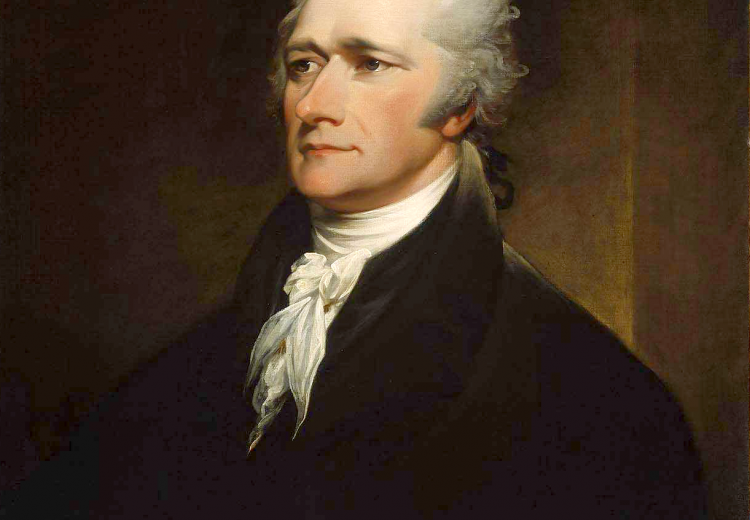The Constitutional Convention: What the Founding Fathers Said

Portrait of Alexander Hamilton by John Trumbull, 1806.
"Alexander Hamilton of New York—a brilliant, ambitious, former aide-de-camp and secretary to Washington during the Revolution, had … become a powerful political figure … There were others who played major roles—Oliver Ellsworth of Connecticut; Edmund Randolph of Virginia; William Paterson of New Jersey …"
— "Constitution of the United States—A History," National Archives
In the course of over two centuries since the nation's founding, the Constitution of the United States has become an iconic document for many Americans, who may with difficulty imagine real people piecing it together detail by painstaking detail through meetings, discussions, committee work, and compromise. Yet we have good records of those proceedings. By means of such records, among them James Madison's extensive notes, we can witness the unfolding drama of the Constitutional Convention and the contributions of those whom we have come to know as the Founding Fathers: Madison, Benjamin Franklin, George Washington, and others who played major roles in founding a new nation.
What were some of the conflicts debated in the meetings and discussions that led to the creation of the Constitution of the United States? What interests and passions drove those conflicts—and to what shared principles did the Founders appeal as they struggled to reach a compromise? In this lesson, students will learn how the Founding Fathers debated, then resolved, their differences in the Constitution Learn through their words and the words of others how the Founding Fathers created "a model of cooperative statesmanship and the art of compromise" (From America's Founding Documents at the National Archives website).
Note: Use this lesson as a sequel to, or in conjunction with, the complementary lesson, Constitutional Convention: Four Founding Fathers You May Never Have Met. By completing the activities in both lesson, students will become familiar with the Constitutional Convention and the men and ideas that shaped the U.S. Constitution.
Guiding Questions
What was the nature of the debates held during the Constitutional Convention?
In what ways do the debates represent "a model of cooperative statesmanship and the art of compromise"?
Learning Objectives
List some ideas proposed and debated during the Constitutional Convention.
Discuss the important issues requiring compromise during the Constitutional Convention.
